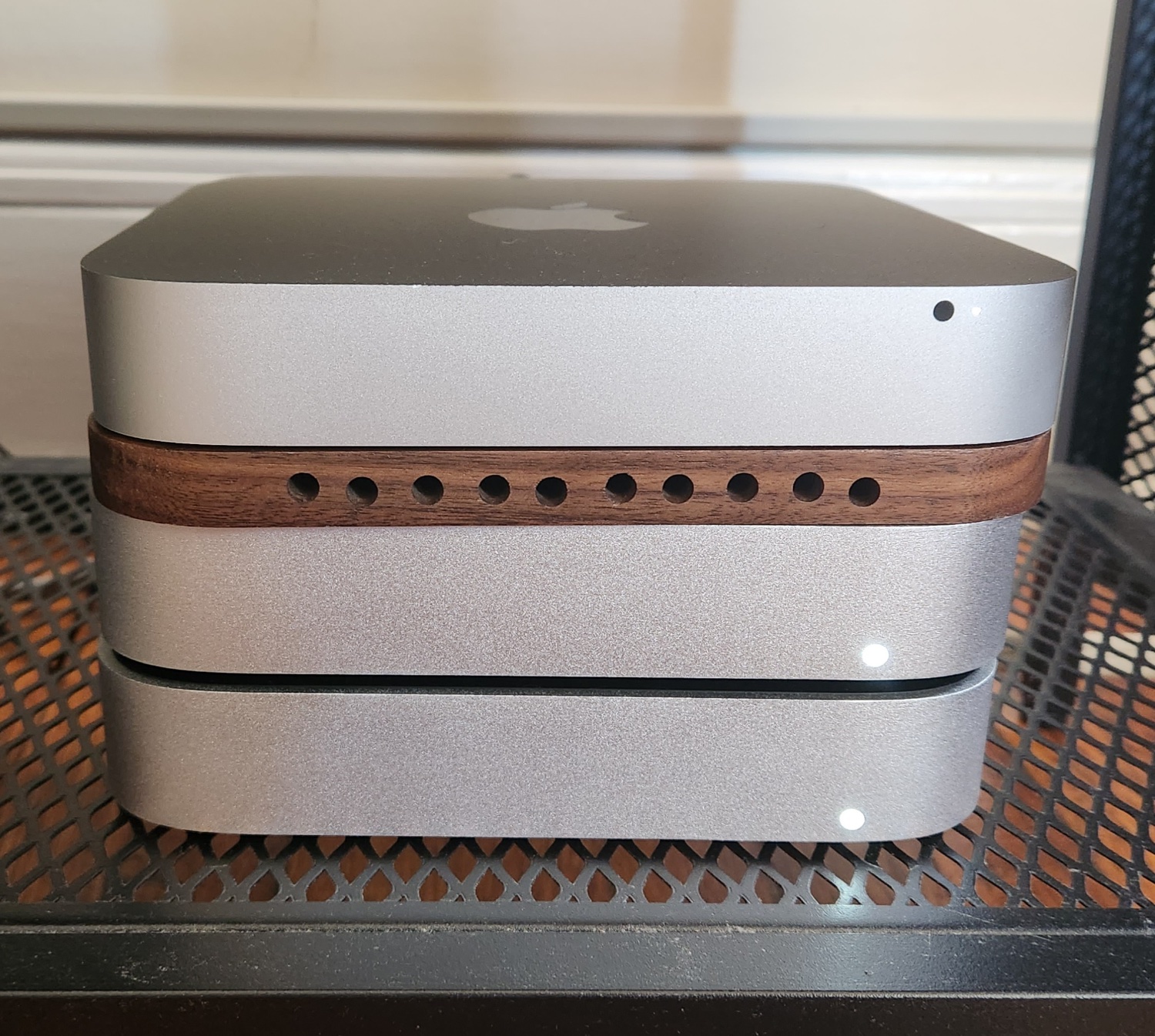The price seems pretty good. I don’t really know much about mini PCs. Do you think there is a better alternative?
Update: ok, not price efficient. Noted 👍
Most answers here are missing the benefits of a home Mac running 24/7 if you’re already part of the Apple ecosystem. For example, you can have it sync all your iCloud data (documents, photos, iTunes content) and back them up locally, then elsewhere outside of Apple’s ecosystem. You can also have it act as a local CDN for OS updates, whereby it will cache OS downloads locally so any subsequent updates will be super quick.
On the downside, I found native Docker on macOS kinda sucked, and just installed Ubuntu on my 2012 Mac Mini (now running Proxmox for funsies), but I have an old iMac to do the caching. You could probably virtualize and get both benefits, and I am considering moving to a new M4 mini for the power savings and sheer speed. That M4 Pro chip has absolutely incredible Geekbench numbers while sipping power.
If the price is right for you, go for it. You will run containers and or VMs, so doesn’t really matter what your bare metal is.
I would choose something where I can install Linux easily and nice and I am sure at the Mac mini price point you can build yourself an assembled mini-pc with beefer specs, but indeed it’s more work and hassle.
YMMV
Self hosted server to do what?
Because I have a self hosted server running on a refurb Lenovo mini-pc that I bought for $90 and it does a fine job running the dozen or so docker image of service I need.
But I ain’t gonna run no LLM on that machine, that’s for sure.
It is very good but depend on what you want to host.
I have a second hand cheapest M2 with Asahi Linux and some container (like pihole) but not much. I like that it is small, silent and energy efficient (and it can run Xplane12 in 4k !). But I have an homemade NAS so most of the multimedia stuff and containers are on here and not on the MacMini.
The M4 seems incredible, but Asahi Linux only support M1 and 2 at the moment (it might work with M4 tho).
The problem with the mini would be disk space if you are looking for a NAS usage, although I have seen here on lemmy a dude making a Mac Mini NAS (can’t find the post anymore).

But even without Asahi, an M4 with Mac OS, docker and a VM if needed would be plenty of power for price and energy. You can also upgrade to a 10Gbe NIC if your network supports it. Plug it to some screens and you have a workstation + docker server in one place.
DAS enclosures are super easy to set up. Disk won’t be a big issue if you go that route.
It wouldn’t be my first choice, but it’ll probably do the job. Depends on what you want to do with it. There’s fewer people choosing this path, which means that when things go wrong, you’ll have fewer sources of information to help.
Some old Dell office PC with a good amount of RAM and an SSD would be just as well.
Power should be plenty and efficiency great. The only thing I wouldn‘t like is external HDDs.
It’s fine, but not going to be the cheapest.
Cheap to buy: Any old PC desktop, really. Most will run linux and windows fine, depending on what you want. Anywhere from free to £100. If you have an old desktop or laptop already, use that to start with.
Cheap to run: Any mini PC. I run a Lenovo ThinkCentre M53 for low power duties. Cost £40 and runs silently at 10watts, idle. (I have a secondary, much beefier server for other stuff that runs at around 100w which lives in the garage)
But plenty of people do run mac minis as home servers, often on Linux. They’re fine - just do your homework on the CPU ability, how much ram you can add, and whether you’re okay with external disks if you can’t fit enough inside.
If you’re planning on running containers, tbh I would not. The required virtualization layer (due to macOS being BSD-based) is going to make containers WAY less efficient. You’re better off with a system you can easily slap proxmox (or whatever distro floats your boat) on.
I bought a M1 Mac Mini second-hand and it’s great for home server purposes. Like others have said, you’ll be using containers a bunch, so bare metal doesn’t matter quite as much as it used to. They’re power efficient and offer good performance. If you’re in the Apple ecosystem, there’s a bunch of other benefits to having a Mac set up as a server (e.g. content caching for updates/iCloud content).
deleted by creator
If it’s an older x86 model, just install Linux on it.
You can install Linux on ARM-based Macs too:
https://asahilinux.org/
!asahilinux@lemmy.worldHow well does that work though? My understanding is that there are still quite a few caveats, but it’s been a while since I actually looked into it.
Everything works except Thunderbolt/USB4 and Video output via USB-C
I wouldn’t use it as a NAS if you plan to use NVMe SSDs for fast storage (since you can’t connect them via USB4), but if you only plan on using SATA SSDs or mechanical drives, USB 3 should be fine. Other than that, everything you would need in a server is there and works flawlessly.
Using the igpu might be problematic for transcoding if you need that. I’d recommend older intel / Asus NUCs if you want a mini PC. 3 year warranty, built for Enterprise, tall version has room for a 7mm tall sata SSD or HDD along with nvme m.2 SSD.
I think if you do Asus 12gen + they have another m.2 slot though it is the smaller one 2242. Doing all this you can upgrade it to 64GB RAM, 8TB m.2 2280, 8TB SATA SSSD, and 1TB M.2 2242. In homelab especially with mini PCs the limit is usually RAM / storage rather than CPU.
I got 4 11th gen with 64 GB RAM each and 32TB of SSD storage. I recommend avoiding QLC SSD as much as possible. Aim for TLC , MLC, or SLC. Higher storage capacity tends to be QLC or TLC, QLC has shortest endurance and slowest speeds.
I mean, it would work, but you would be better off power-wise, price-wise, and performance-wise, going with a used office PC such as Optiplex.
I switched all my server stuff to my m1 Mac mini because previously I was trying to host everything off my truenas scale NAS with truecharts. Since truecharts isn’t really an option for future truenas updates and I already had an m1 Mac mini I bought secondhand, I figured it’d work pretty well for docker containers, which it does. And it’s a ton more easy for me to troubleshoot than K8s.




